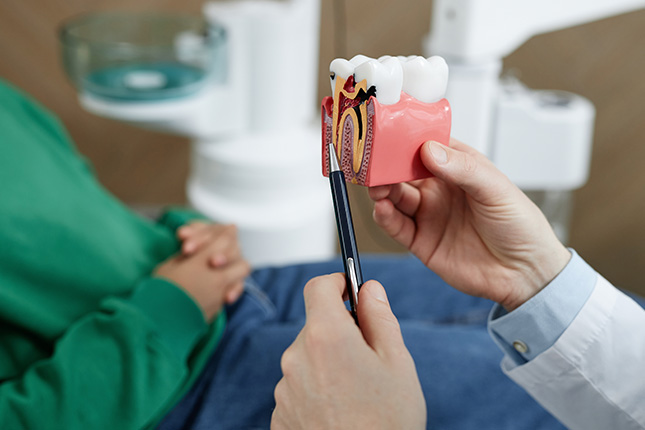Your teeth are strong enough to last a lifetime but can decay, become injured, or infected. This can cause a lot of pain and potentially lead to losing vital adult teeth. Undergoing a root canal is a dental treatment that saves the tooth by repairing the diseased areas. The procedure removes the soft center, also called the pulp, inside your tooth and replaces it with a sealant, preventing further injury and protecting the healthy roots.
When Do You Need a Root Canal?
You may need a root canal when the pulp of your tooth becomes injured or infected, is inflamed, or cannot be repaired through pain treatments. When the inside of the tooth becomes infected or dies, the outer part of the tooth can be saved by removing the dead pulp and preserving the tooth’s structure.
Some common causes of pulp infection or damage include constant toothaches, tooth discoloration, sensitivity to hot and cold temperatures, or a chipped or cracked tooth that causes pain or discomfort.
Root canals can be performed by your regular dentist or an endodontist, a specialist in diagnosing and treating tooth pain and other procedures regarding the inside of a tooth.
Preparing for a Root Canal Treatment
There is not a lot you need to do to prepare for a root canal treatment. Your dentist or endodontist will provide information on what to do and answer any questions you may have.
Before the procedure, your dentist will provide you with medications or antibiotics that prevent the spread of infection in the few days before your treatment. Avoid smoking and eat a healthy meal before the procedure, as you likely won’t be able to eat for several hours afterward.
The Side Effects of a Root Canal
Although rare, some patients’ nerves around the tooth can be disrupted after the procedure and cause prolonged numbness that usually goes away within a few weeks. Because a root canal uses local anesthesia, you may experience an allergic reaction. Inform your dentist if you have ever experienced complications from any form of anesthesia.
Call your dentist or endodontist right away if you feel severe pain or pressure, experience visible swelling, or if your bite feels uneven after the procedure. They can examine the area for any issues and recommend further treatment.
Recovering from a Root Canal
The local anesthetic will fade hours after the treatment. Most patients only need a few days to recover. Within the first 24 to 48 hours after the root canal, most patients experience little to mild discomfort, which is managed with over-the-counter pain medicine. You can speak with your dentist about additional pain relief options if you are in extreme pain.
If you’re experiencing pain in your teeth or around your gums, contact Loren J. Grossman & Steven Hippeli General & Cosmetic Dentistry. We can discuss saving your teeth and relieving the pain with a root canal.






